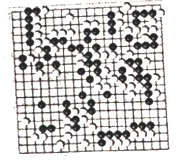题目内容
【题目】 Curiosity is what drives us to keep learning, keep trying, keep pushing forward. But how does one generate (产生) curiosity, in oneself or others? George Loewenstein, a professor of psychology at Carnegie Mellon University, offered an answer in the classic1994 paper, “The Psychology of Curiosity.”

Curiosity arises, Loewenstein wrote, “when attention becomes focused on a gap in one's knowledge. Such information gaps produce the feeling of deprivation (匮乏) labeled curiosity. The curious individual is motivated to obtain the missing information to reduce the feeling of deprivation.” Loewenstein's theory helps explain why curiosity is such a force: it's not only a mental state but also an emotion, a powerful feeling that drives us forward.
Scientist Daniel Willingham notes that teachers are often “so eager to get to the answer that we do not devote enough time to developing the question.” Yet it's the question that stimulates (刺激) curiosity; being told an answer stops curiosity before it can even get going.
In his 1994 paper, George Loewenstein noted that curiosity requires some basic knowledge. We're not curious about something we know absolutely nothing about. But as soon as we know even a little bit, our curiosity is aroused and we want to learn more. In fact, research shows that curiosity increases with knowledge: the more we know, the more we want to know. To get this process started, Loewenstein suggests, take steps with some interesting but incomplete information.
Language teachers have long used communication in exercises that open an information gap and then require learners to communicate with each other in order to fill it. For example, one student might be given a series of pictures for the beginning of the story, while the student's partner is given a series of pictures showing how that same story ends. Only by speaking with each other (in the foreign language they are learning, of course) can the students fill in each others' information gaps.
【1】When one notices a gap in his knowledge, he .
A.desires to fill it
B.tends to be afraid
C.might get tired and sad
D.will become focused on his learning
【2】What does Daniel Willingham imply in the article?
A.Answers are more important than questions.
B.Teachers should be eager to get to the answer.
C.Teachers know how to stimulate students’ curiosity.
D.Teachers are partly to blame for students’ hating school.
【3】According to George Loewenstein’s paper, curiosity about something occurs only when you .
A.have read a lot of booksB.know little about something
C.have some related informationD.are given incomplete information
【4】What is the article mainly about?
A.Why students hate school.
B.Why curiosity is important.
C.How to stimulate curiosity.
D.What makes people hungry for knowledge.
【答案】
【1】A
【2】D
【3】C
【4】C
【解析】
本文是一篇说明文。好奇心像一台发动机,让你在求知的路上突飞猛进、硕果累累。那么如何激发好奇心呢?请看科学家们怎么说吧。
【1】细节理解题。根据第二段中的The curious individual is motivated to obtain the missing information to reduce the feeling of deprivation.可知,好奇的人会被激励去获取缺失的信息,从而减少被剥夺的感觉。由此可知,当人们意识到知识缺口时,就渴望弥补它。故选A。
【2】推理判断题。根据第三段Scientist Daniel Willingham notes that teachers are often “so eager to get to the answer that we do not devote enough time to developing the question.” Yet it's the question that stimulates (刺激) curiosity; being told an answer stops curiosity before it can even get going.可知,科学家Daniel Willingham指出,老师们往往“太急于得到答案,以至于我们没有投入足够的时间来研究这个问题。” 然而,正是这个问题激发了人们的好奇心;被告知答案会在好奇心开始之前就停止了。由此可知,Daniel Willingham暗示学生对学校的厌恶,部分要归咎于教师。故选D。
【3】细节理解题。根据第四段的In his 1994 paper, George Loewenstein noted that curiosity requires some basic knowledge. We're not curious about something we know absolutely nothing about.可知,George Loewenstein在他1994年的论文中指出,好奇心需要一些基本的知识。我们对自己一无所知的事物并不好奇。由此可知,只有当你有一些相关的信息时,你才会对某事产生好奇心。故选C。
【4】主旨大意题。通读全文以及根据第一段中的But how does one generate (产生) curiosity, in oneself or others?(但是,一个人是如何激发自己或他人的好奇心的呢?)可知,本文讲述了好奇心是怎样产生的问题,针对此问题,最后三段对如何激发好奇心给出了科学的建议。由此可知本文主要谈论了怎样去激发好奇心。故选C。

 阅读快车系列答案
阅读快车系列答案

